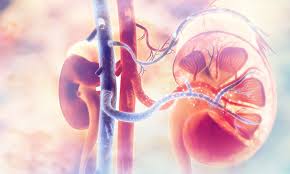Tobacco addiction is a global health concern that has far-reaching consequences for individuals and communities. It is estimated that tobacco use kills more than 8 million people each year, with over 7 million deaths attributed to direct tobacco use and around 1.2 million to secondhand smoke. This article explores the wide-ranging health consequences of tobacco addiction, highlighting the impact on various body systems and discussing the long-term effects associated with this harmful habit.
Cardiovascular System
Tobacco addiction poses a significant risk to the cardiovascular system. Smoking tobacco increases the likelihood of developing heart disease, stroke, and peripheral vascular disease. The harmful chemicals in tobacco smoke cause damage to blood vessels, leading to the accumulation of plaque, reduced blood flow, and increased risk of blood clots. As a result, smokers are more prone to heart attacks, angina, and sudden cardiac death. Additionally, tobacco use raises blood pressure and contributes to the development of atherosclerosis, further exacerbating cardiovascular problems.
Respiratory System
The respiratory system is directly impacted by tobacco addiction. Inhalation of tobacco smoke exposes the lungs to numerous toxic chemicals, causing significant damage over time. Smokers are at a higher risk of developing chronic obstructive pulmonary disease (COPD), which includes conditions like chronic bronchitis and emphysema. COPD results in persistent coughing, wheezing, shortness of breath, and decreased lung function. Tobacco use also increases the likelihood of developing lung cancer, with over 80% of all lung cancer cases being directly linked to smoking.
Cancer
Tobacco addiction is a major contributor to various types of cancer. In addition to lung cancer, smoking is strongly associated with cancers of the mouth, throat, esophagus, pancreas, bladder, kidney, and cervix. The harmful substances present in tobacco smoke damage DNA and disrupt normal cellular processes, leading to the uncontrolled growth of cancerous cells. Quitting smoking significantly reduces the risk of developing these cancers, and the earlier one quits, the greater the potential for reducing the associated health risks.
Reproductive System
Tobacco addiction adversely affects the reproductive health of both men and women. In women, smoking increases the risk of infertility, miscarriages, premature births, and low birth weight. It can also lead to complications during pregnancy, such as placental abnormalities and ectopic pregnancies. In men, smoking is associated with decreased sperm count, reduced sperm motility, and increased risk of erectile dysfunction. Moreover, exposure to secondhand smoke can affect the reproductive health of non-smoking partners and unborn children.
Other Health Consequences
Tobacco addiction has a detrimental impact on various other body systems. It weakens the immune system, making individuals more susceptible to infections and impairing the healing process. Smoking can cause oral health problems like gum disease, tooth decay, and tooth loss. It also accelerates skin aging, resulting in wrinkles and premature aging signs. Furthermore, tobacco use is linked to an increased risk of osteoporosis, vision problems, and gastrointestinal disorders.
Tobacco addiction poses severe health consequences that affect numerous body systems. It increases the risk of cardiovascular diseases, respiratory conditions, various types of cancer, reproductive complications, and other health issues. It is crucial to raise awareness about the harmful effects of tobacco use and encourage smoking cessation. Quitting smoking at any age can significantly improve health outcomes and reduce the risk of developing associated diseases. Governments, healthcare professionals, and society as a whole must work together to implement effective tobacco control measures and support individuals in breaking free from the grip of tobacco addiction.





